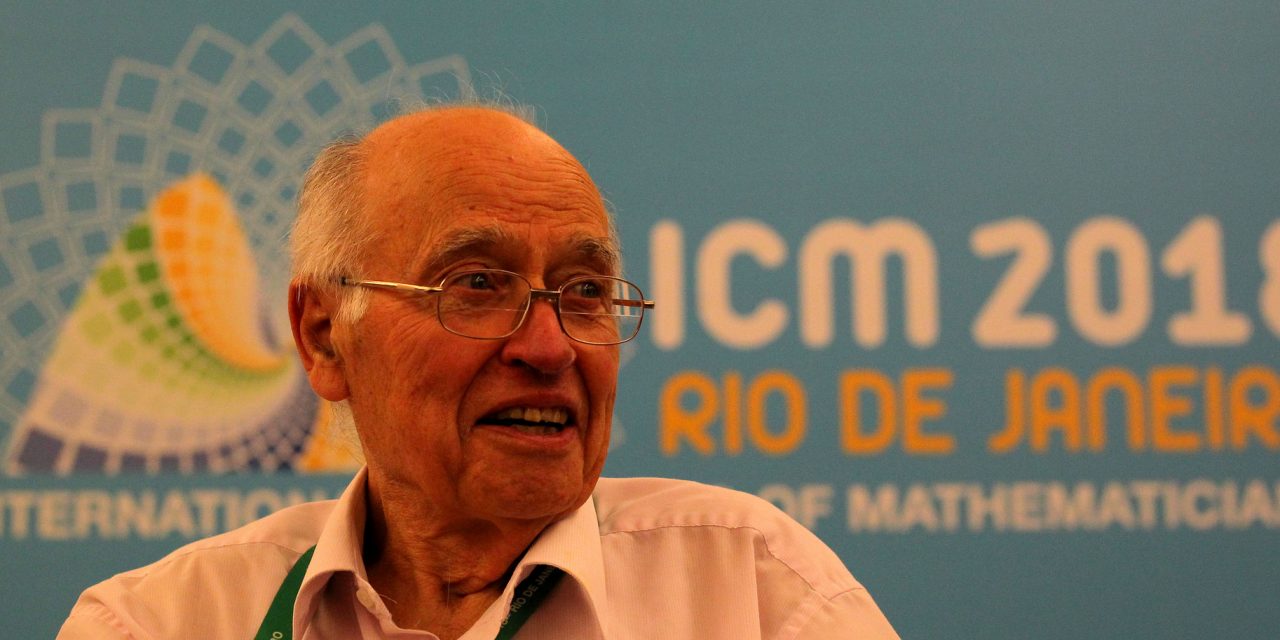August 6, 2018, 6:10 pm

Although Sir Michael Atiyah’s presence has elicited excited responses from mathematicians of all ages at the 2018 International Mathematics Congress, the seasoned mathematician sees himself as a mere enthusiast. “If you love maths, you go on working at it for as long as you can,” he said, describing himself as an “aficionado” of the academic discipline in the same way that others might follow football or tennis. “One of my sons told me that it was impossible for me to do any good work, as most mathematicians do their best before 40 and I was nearly 80 at the time. So, I had to prove him wrong!”
Atiyah, who is due to give the 2018 Abel lecture at this year’s ICM later this evening, says he doesn’t remember a time when he didn’t enjoy mathematics. But for the legendary mathematician, one of his chosen discipline’s most definitive characteristics is its overlap with other areas of study. “To be a mathematician, you also have to be a philosopher, an artist,” he said. Keeping an open mind about potential applications for mathematics in other disciplines has been crucial to the 1966 Fields Medal winners success, with his theorems finding themselves heavily applied in physics in addition to other areas. “People find applications that you never even thought about. My theorem has been applied to graphene!”
Read more:
The 2004 Abel Prize winner never imaged himself in neuroscience. However, a conversation with his friend, neurobiologist Semir Zeki, led the two to collaborate on a study looking at how human’s brains react when faced with beautiful mathematical equations or formulae. Named ‘The Experience of Mathematical Beauty and Its Neural Correlates’, Sir Atiyah says the study has been cited more than anything else he has ever authored.
Even as a zealot, Sir Atiyah believes that mathematics’ true potential can only be reached with sustained collaboration between different academic disciplines – as he hopes to continue himself. “If you isolate mathematics from everyone else, it will die. You must involve mathematics with as many things as possible – biology, chemistry, philosophy, etcetera,” he said.
Sir Atiyah is confident in a vibrant future for academic mathematics. “Not all art is immediately appreciated. It can take a long process of learning to appreciate it’s evolution,” he said, asserting that for him – and for the mathematicians in Zeki’s study, mathematics is exactly that form of advanced art that necessitates an acquired taste to be appreciated. “I do mathematics because it is beautiful.”